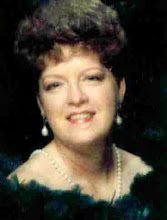Thursday, November 20, 2008
The First Thanksgiving
The First Thanksgiving
In 1621, the Plymouth colonists and Wampanoag Indians shared an autumn harvest feast which is acknowledged today as one of the first Thanksgiving celebrations in the colonies. This harvest meal has become a symbol of cooperation and interaction between English colonists and Native Americans. Although this feast is considered by many to the very first Thanksgiving celebration, it was actually in keeping with a long tradition of celebrating the harvest and giving thanks for a successful bounty of crops. Native American groups throughout the Americas, including the Pueblo, Cherokee, Creek and many others organized harvest festivals, ceremonial dances, and other celebrations of thanks for centuries before the arrival of Europeans in North America.
Source: http://www.history.com/minisites/thanksgiving Thanksgiving History, Videos, Facts
The First Thanksgiving
The first American Thanksgiving was celebrated in 1621, to commemorate the harvest reaped by the Plymouth Colony after a harsh winter. In that year Governor William Bradford proclaimed a day of thanksgiving. The colonists celebrated it as a traditional English harvest feast, to which they invited the local Wampanoag Indians. Days of thanksgiving were celebrated throughout the colonies after fall harvests. All thirteen colonies did not, however, celebrate Thanksgiving at the same time until October 1777. George Washington was the first president to declare the holiday, in 1789.
A New National Holiday
By the mid–1800s, many states observed a Thanksgiving holiday. Meanwhile, the poet and editor Sarah J. Hale had begun lobbying for a national Thanksgiving holiday. During the Civil War, President Abraham Lincoln, looking for ways to unite the nation, discussed the subject with Hale. In 1863 he gave his Thanksgiving Proclamation, declaring the last Thursday in November a day of thanksgiving. In 1939, 1940, and 1941 Franklin D. Roosevelt, seeking to lengthen the Christmas shopping season, proclaimed Thanksgiving the third Thursday in November. Controversy followed, and Congress passed a joint resolution in 1941 decreeing that Thanksgiving should fall on the fourth Thursday of November, where it remains.
Source: http://www.infoplease.com/spot/tgturkey1.html First Thanksgiving Day History and New National Holiday
http://en.wikipedia.org/wiki/Thanksgiving Thanksgiving Day in Canada, Grenada, and the United States
http://www.thanksgivinghistory.net/ Thanksgiving History
As you can see there are several explanations about the First Thanksgiving. If you want more resources on Thankgsiving, please check out http://www.geocities.com/mrsjacksonsclass/thanksgiving.htm . See the Native American theme resources at http://geocities.com/mrsjacksonsclass/nativeamericans.htm .
To learn about the Pilgrims go to http://geocities.com/mrsjacksonsclass/pilgrims.htm .
Have a great Thanksgiving Day!
Wednesday, November 19, 2008
The Power of Documentation
Keeping a record of your day with personal observations and opinions will be helpful in many ways. If a parent has questions about past events in your classroom or an administrator’s recollection of a conversation with you is not what you recall, you can refer back to your journal. Your journal can be a real lifesaver.
In court cases, a physician's notes are a key part of evidence. The same thing holds true when the defendant (or plaintiff) is a teacher.
*Keep a notebook in your desk drawer. Red is a good color for a cover.
*When anything unusual happens, write it down.
*Just the facts: Date, Time, Place, Those Involved, What Happened, What Was Said
*Who, What, Where, When--Not Why--Not How
*You may use First Person (I saw...) or Third Person (Mrs. Hopkins saw...)
*Keep emotions out of the documentation.
*Look for patterns over time.
*Do not overwrite--documentation should take 30 seconds to 2 minutes per day, not a half hour.
*Date and file all correspondence from parents. Keep every piece of paper from the school or central office. You don’t need an elaborate filing system. Just keep one folder for each category per year.
Most importantly, keep documenting! You plus your notes outweighs an accuser (or defendant) without documentation.
Source: TSTA Beginning Teacher E-newsletter, November 19, 2008
Sources for more teacher tips and ideas:
http://geocities.com/mrsjacksonsclass/
http://geocities.com/mrsjacksonsclass/teachertipsideas.htm
http://geocities.com/mrsjacksonsclass/classmanagementideas.htm
Thursday, November 13, 2008
American Education Week, Nov. 16-22, 2008
Monday, Nov. 17 is Open House Day. From national commemorations to local community events such as AEW house parties, millions of Americans will celebrate public education nationwide.
Tuesday, Nov. 18 is Parents Day. Schools will invite parents into the classroom for a hands-on experience of what the day is like for their child.
Wednesday, Nov. 19 is Education Support Professionals Day. Individuals who provide invaluable services to schools are recognized for their outstanding work.
Thursday, Nov. 20 is Educator for a Day. Community leaders will be invited to serve as educators to get a glimpse at a day in the life of a school employee.
Friday, Nov. 21 is Substitute Educators Day. This day honors the educators who are called upon to replace regularly employed teachers.
Sources: http://www.nea.org:80/aew/toolkit.html and TSTA_MemberMatters- TSTA_MemberMatters.UM.A.2922.620@news.nea.org
Other Source for Resources: http://www.geocities.com/mrsjacksonsclass/teacheappreciationowl.htm and http://geocities.com/mrsjacksonsclass/
